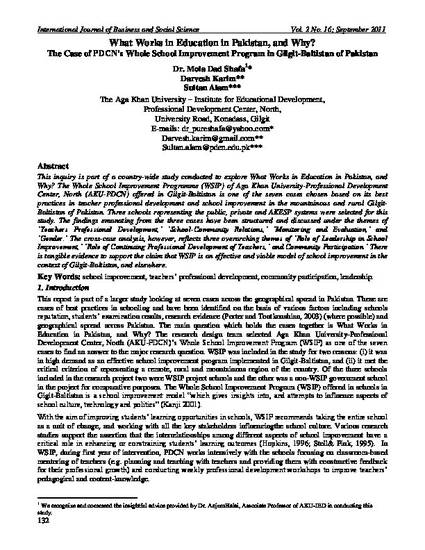
This inquiry is part of a country-wide study conducted to explore What Works in Education in Pakistan, and Why? The Whole School Improvement Programme (WSIP) of Aga Khan University-Professional Development Center, North (AKU-PDCN) offered in Gilgit-Baltistan is one of the seven cases chosen based on its best practices in teacher professional development and school improvement in the mountainous and rural Gilgit-Baltistan of Pakistan. Three schools representing the public, private and AKESP systems were selected for this study. The findings emanating from the three cases have been structured and discussed under the themes of „Teachers Professional Development,‟ „School-Community Relations,‟ „Monitoring and Evaluation,‟ and „Gender.‟ The cross-case analysis, however, reflects three overarching themes of „Role of Leadership in School Improvement,‟ „Role of Continuing Professional Development of Teachers,‟ and Community Participation.‟ There is tangible evidence to support the claim that WSIP is an effective and viable model of school improvement in the context of Gilgit-Baltistan, and elsewhere.
Available at: http://works.bepress.com/moladad_shafa/11/
